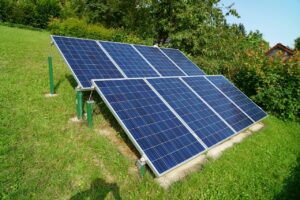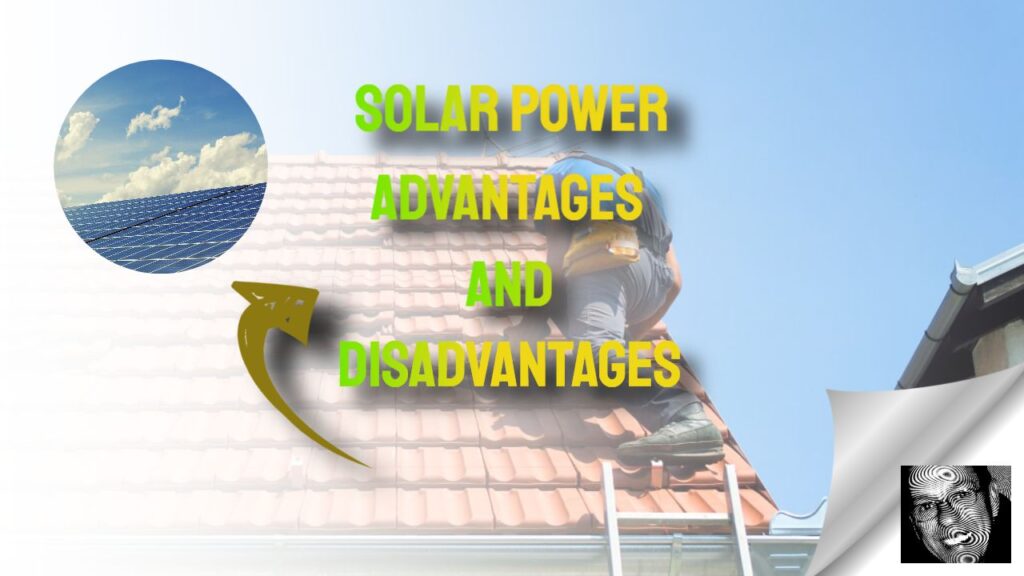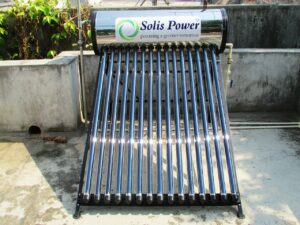Delve into Essential Insights on Solar Energy
- Uncover the 12 Key Advantages & Disadvantages of Solar Energy
- Comprehensive Understanding of Solar Energy: A Thorough Overview
- Effortless Installation of Solar Lights for Homes and Outdoor Spaces
- Explore the Significant Benefits of Solar Energy
- Harnessing Solar Energy: Your Pathway to Sustainable Home Energy Solutions
- Ultimate Guide to Home Solar Batteries: Enhance Your Energy Storage
- Proven Techniques for Storing Solar Energy in Your Home
- Complete Guide to Heating Your Pool with Solar Panels
- Analyzing the Advantages and Disadvantages of Nuclear Energy
- In-Depth Exploration of Key Benefits of Nuclear Energy
- Mechanisms of Power Generation: How Solar Panels Operate
- Assessing the Effects of Reduced Sunlight on Solar Power Efficiency
- Analyzing the Pros and Cons of Wind Energy
- Exploring the Key Benefits of Wind Energy for Sustainable Power
- In-Depth Evaluation of Hydropower: Pros and Cons for Energy Solutions
Uncover the 12 Key Advantages & Disadvantages of Solar Energy
As you embark on the journey of integrating solar panels into your home, it’s essential to thoroughly understand the advantages and disadvantages of solar energy. This knowledge serves as a foundational step in your research as a homeowner looking to make sustainable choices. We will explore the most impactful factors that influence your decision-making process, from financial considerations to environmental impacts. One innovative component in this arena is the solar watt energy manager, a sophisticated control unit that optimizes energy management within your home. This advanced system meticulously tracks both energy generation and energy consumption, offering numerous benefits that enhance overall energy efficiency and sustainability.
The ongoing debate surrounding nuclear energy underscores the multifaceted nature of renewable energy sources. Proponents and critics of nuclear power passionately defend their viewpoints, emphasizing various pros and cons associated with its use. By gaining deeper insights into these advantages and disadvantages, you will be empowered to make informed decisions about your energy consumption and the sustainability practices you wish to adopt. Understanding the complexities of energy sources can help you navigate the evolving landscape of energy technology.
While solar energy systems are designed with user-friendliness in mind, certain challenges may arise, particularly related to limited installation space and the necessity for specific configurations to maximize efficiency. Homeowners need to ensure they have adequate accessibility, such as a suitable roof or an expansive backyard, to install solar arrays effectively. For individuals residing in apartments or condominiums, the practicality of installing a personal solar array may be significantly diminished, often necessitating collaboration with property management to explore viable shared solar solutions that benefit all residents.
The environmental advantages of solar energy are substantial; it plays a crucial role in the establishment of green buildings, which rely on renewable sources such as solar, wind, and geothermal energy. This transition significantly reduces society’s dependence on fossil fuels, ultimately leading to a lower carbon footprint. However, the placement of solar installations is critical; obstacles like trees or adjacent structures can block sunlight, adversely affecting efficiency. Homeowners must also assess their architectural designs, as certain styles may not be conducive to effective solar panel installations.
Recent developments indicate that Vietnam is poised to cut its feed-in tariffs for rooftop solar installations by approximately 38% next month, a move intended to alleviate stress on the national power grid. According to the Dai Doan Ket newspaper, Hoang Tien Dung, the head of the Ministry of Industry and Trade’s Electricity and Renewable Energy Bureau, revealed that the tariffs will adjust to a range of US$0.052 to US$0.058 per kilowatt-hour, depending on the size of the system installed. This change reflects a significant shift in the country’s energy policy landscape.
If your energy bill highlights considerable opportunities for savings, consider investing in solar energy as a practical solution. By harnessing the sun’s abundant energy, you can not only power your home sustainably but also potentially reduce or completely sever your reliance on the traditional power grid. Additionally, solar energy systems are generally characterized by low maintenance costs throughout their operational lifespan, making them an appealing choice for homeowners focused on sustainability.
Effortless Installation of Solar Lights for Homes and Outdoor Spaces
Whether you’re utilizing solar energy in a motorhome, at a campsite, or in your residence, most solar-powered devices are crafted for portability and ease of use. You can choose to invest in individual solar products such as solar lanterns and charming decorative fairy lights, or you may opt for a more mobile setup with portable solar panels and batteries, creating a versatile solar system that aligns with your unique needs and lifestyle.
Among the leading options available in the solar generator market is the Suaoki model, which is celebrated for its affordability and user-friendly setup. This generator offers three distinct charging methods, enabling you to recharge it outdoors using the Suaoki 60W solar panel or any compatible solar panel, as well as through an AC plug or DC input from your vehicle. With a battery capacity of 444Wh, this compact generator weighs just over 12 pounds, making it an exceptional companion for camping trips, agricultural work, fishing expeditions, hunting adventures, or construction sites.
Now that you’re acquainted with the fundamentals of solar energy, consider engaging in interactive solar projects with your children that are not only educational but also easy to implement at home. For example, constructing a solar oven can turn a sunny day into a delightful opportunity to prepare tasty meals such as pizza, hot dogs, or cheesy nachos. With the help of instructional videos, you can transform a simple lesson into an enjoyable afternoon project that the entire family can participate in, fostering creativity and learning.
A recent solar lighting project showcased the adaptability of portable solar lights. A client required lighting solutions for various applications, including car parks and adjacent construction sites. Instead of the traditional method of digging trenches for fixed lights, they opted for portable solar lights that can be easily moved by forklifts. This innovative approach ensured that both the parking areas and the construction site remained well-lit, demonstrating the practicality of shifting away from conventional lighting solutions.
Explore the Significant Benefits of Solar Energy
The realm of solar energy is rich with valuable insights, yet misconceptions can cloud the realities. In this discussion, we will thoroughly examine the myriad advantages and disadvantages associated with the installation of solar panels and the broader solar energy sector. The benefits of solar energy extend across multiple facets, including financial savings, social impact, and environmental sustainability. Some of these benefits are widely acknowledged, while others may not be immediately apparent; we will dissect each aspect in detail to provide a clearer understanding.
Ultimately, the advantages of solar energy significantly outweigh its drawbacks, solidifying its position as the most accessible form of renewable energy globally. From residential properties to commercial enterprises, the integration of solar energy systems can effectively reduce electricity expenses and diversify energy sources, preparing individuals for potential energy crises. Furthermore, continual advancements in technology are enhancing the efficiency and cost-effectiveness of solar energy systems, making them increasingly viable options for homeowners and business operators alike.
Explore these insightful videos featuring industry experts discussing the pros and cons of hydropower; they dive into the ongoing debate surrounding renewable energy sources. Environmental activists often express concerns regarding the environmental impact of dam construction, prompting discussions about the long-term sustainability of hydropower. Will we prioritize renewable energy sources like solar, or will we continue to rely on fossil fuels? Is hydropower an economically feasible solution, and what disadvantages might arise from its implementation and operation?
In summary, the Hi-mo3 half-cut bifacial PERC module series has pioneered advancements in monocrystalline PERC technology. This series is distinguished by its high power output, exceptional yield, and low capital expenditure (CapEx). The Hi-mo3 utilizes half-cut technology to reduce the operating current of solar cells, effectively minimizing resistive losses and enhancing power output by an average of 5-10 watts. With bifacial technology, the front panel power reaches 320W (60-cell), achieving a bifaciality ratio exceeding 75%.

Harnessing Solar Energy: Your Pathway to Sustainable Home Energy Solutions
Determining the most suitable renewable energy source for your needs can be a challenging endeavor. Solar energy, which generates electricity through photovoltaic cells, is rapidly gaining traction among homeowners and businesses alike. Installing solar panels provides a multitude of benefits, including significantly lower energy costs and enhanced energy independence. As a static energy solution devoid of moving parts, solar panels offer a dependable method for capturing clean energy, making a valuable contribution to your sustainability goals.
Ultimate Guide to Home Solar Batteries: Enhance Your Energy Storage
Every homeowner deserves the chance to harness solar energy on their property. In numerous states, this right is safeguarded by solar access laws that prevent local governments and homeowners’ associations (HOAs) from obstructing solar energy installations. However, these laws are not uniformly enforced, and even in compliant states, some HOAs may still impose outdated regulations that limit homeowners’ access to solar technology. This detailed guide aims to assist you in navigating HOA objections regarding your solar installation, equipping you with effective strategies to promote solar-friendliness in your home.
While solar energy systems come with various advantages, if this article has piqued your interest, our comprehensive 6-step guide can prove invaluable in identifying the best solar panels tailored to your home. This guide covers essential topics such as roof suitability, selecting the appropriate type of solar panels, understanding costs, exploring savings opportunities, and maintenance advice to ensure optimal performance.
For those considering battery backup solutions, companies like SolarCity provide Tesla Powerwall batteries, specifically designed to offer backup energy during outages and emergencies. The Powerwall is compact, stackable, and features an integrated inverter, allowing for seamless integration with SolarCity’s solar power systems.
Historically, energy storage has posed challenges within solar systems, as battery technology has struggled to keep pace with production technology. While we can efficiently generate substantial electricity, storing it for use at night or during cloudy days has remained a hurdle. Many homeowners find it difficult to manage energy storage and sell surplus energy back to utility companies, complicating the overall energy strategy.
Proven Techniques for Storing Solar Energy in Your Home
Recognized as one of the most efficient methods to generate renewable energy for residential properties, solar energy systems are not only affordable and easy to install but also require minimal maintenance. However, it’s crucial to acknowledge that this energy solution may not be suitable for every scenario. Like any energy source, solar energy presents both advantages and disadvantages. Before committing to solar energy for your home or business, it is prudent to look beyond marketing claims and understand the fundamental facts surrounding this energy solution.
The sun generates an astronomical amount of energy, taking roughly 8 minutes for its rays to traverse the millions of miles to reach Earth. Astoundingly, enough solar energy strikes the planet every hour to power the entire globe for an entire year. This incredible potential raises critical questions about how we can effectively harness this energy for personal use. The key lies in the deployment of solar panels, which serve as the primary mechanism for capturing and converting sunlight into usable electricity.
The 2018 Solar Power Portal Awards are currently open for entries, as highlighted by Clean Energy News. This prestigious event, a cornerstone of the UK renewables industry calendar, marks its sixth year with an exciting rebranding initiative. The Solar Power Portal and Energy Storage News will join forces to celebrate the burgeoning battery storage market both domestically and internationally.
By utilizing distributed energy generation, energy efficiency improves while waste diminishes, as energy sources are located closer to consumers. Leveraging renewable energy sources like solar and wind for electricity production in residential and commercial contexts enhances the feasibility of this model. Smaller microgrid units exhibit greater resilience against simultaneous failures compared to larger systems, rendering distributed generation systems more reliable. Moreover, the consequences of failure are less severe for a small unit than for a larger one, enhancing overall system stability.
Complete Guide to Heating Your Pool with Solar Panels
The applications of solar energy extend far beyond just solar panels; solar water heaters are frequently employed to heat and store water, particularly in cooler climates. These innovative systems operate by absorbing heat from sunlight through specialized thermal collectors. The efficiency of solar water heaters largely depends on the availability of sunlight, enabling them to effectively meet the demand for warm water on sunny days.
Various solar panel systems can also be used for water heating applications. Thermal solar solutions provide environmentally friendly alternatives to gas boilers and traditional water heaters, offering a sustainable method for heating water without the environmental repercussions associated with fossil fuel use.
In the exciting realm of solar science kits for children, there have been significant advancements in the solar toy market. With scalable technology, miniature solar-powered products have gained immense popularity, providing engaging and educational experiences for young learners. These solar kits can spark curiosity and enhance understanding of solar energy concepts among children, making learning fun and interactive.
To introduce the concept of ‘solar thermal energy’ to children, it’s important to clarify that the most widely utilized solar technologies today include solar water heaters and pool heaters, both operating on this fundamental principle. While solar panels are often the first technology that comes to mind when discussing solar energy, thermal solar solutions offer a cost-effective entry point for those eager to adopt solar technologies.
Solar panels primarily aim to reduce energy costs and provide power for in-home appliances and devices; however, they can also serve a variety of other applications. This includes managing your pool and shower heaters, as well as charging devices such as phones, radios, laptops, and more. The potential of solar energy is remarkable, showcasing a vast array of products that can harness its renewable power effectively.
Analyzing the Advantages and Disadvantages of Nuclear Energy
In the contemporary landscape, there is a collective drive towards green and renewable energy to bolster environmental sustainability. Solar panels are often the preferred solution for individuals seeking clean energy options; however, like any energy solution, the installation of solar panels (or solar-integrated products) comes with its own set of advantages and disadvantages. This section will explore the essential pros and cons of solar energy systems in detail.
Similar to any energy source, the adoption of solar energy brings both benefits and challenges. The high initial costs can be a considerable hurdle; although solar energy can lead to lower electricity bills, the upfront expenses associated with equipment and installation can easily exceed $20,000. Additionally, powering devices that operate on direct current (DC) may incur additional costs that could deter some homeowners.
Nuclear power generation involves a complex, multi-step process aimed at capturing energy while managing its accompanying negative byproducts. This intricate methodology contributes to the various advantages and disadvantages linked to nuclear energy production, highlighting the need for careful consideration and evaluation.
While solar energy does have its limitations, extensive research and innovation are necessary to enhance the technology before it can be fully relied upon as a primary energy source. Nonetheless, the unsustainable nature of fossil fuel consumption emphasizes the urgency of transitioning towards renewable energy solutions. By addressing the shortcomings of solar power, society can strive for a more sustainable energy future through technological advancements and strategic planning.
In-Depth Exploration of Key Benefits of Nuclear Energy
Despite the controversies and potential drawbacks surrounding nuclear energy, it does offer notable advantages when compared to other energy production methods. Nuclear energy generation is typically low-cost, highly reliable, and does not emit greenhouse gases, making it an attractive option for many countries seeking to reduce their carbon emissions.
Various strategies are employed to ensure adequate power generation that meets load demands. This article will take a closer look at solar energy, illuminating its advantages and disadvantages in comparison to other energy sources such as thermal, wind, and nuclear energy.
A significant reason nuclear energy often faces criticism stems from its associated disadvantages, which include uranium mining, water pollution, waste disposal, leaks, and safety concerns regarding reactor failures. Each of these factors contributes to the ongoing debate surrounding nuclear energy’s role in our energy landscape.
Given the myriad benefits and drawbacks of nuclear energy, it is understandable why it remains a contentious issue. Therefore, it is essential to educate yourself about this topic to form a well-informed opinion regarding the use of nuclear energy in our energy mix going forward.
Mechanisms of Power Generation: How Solar Panels Operate
Many electricity suppliers offer buy-back programs for the surplus energy generated by solar panels and other home appliances. These programs frequently feature attractive buy-back rates, allowing homeowners to recoup their initial investment over time. One of the major advantages of solar panels is their low maintenance costs, which can lead to significant savings over the lifespan of the system.
Unlike some other costly home projects, the expenses associated with solar panel installations are primarily front-loaded. Once the installation is complete, homeowners can enjoy long-term energy savings without incurring ongoing maintenance expenses, further enhancing the value of their investment.
Installing rooftop solar panels typically requires a specialized mounting system, or “rack,” to be placed onto your roof. However, certain roofing materials found in older or historic homes, such as slate or cedar tiles, can present challenges for solar installers, potentially complicating the installation process. Additionally, many residential and apartment buildings have skylights or other structures on their roofs, further complicating the feasibility of installation.
Despite these challenges, the widespread adoption of solar power in the United States is unlikely to face significant hurdles in the long run. G&H Sustainability’s innovative efforts to deliver a groundbreaking project for Asda have been shortlisted for a prestigious national award. This project involved installing 984 photovoltaic panels using an innovative roof mounting system, recognized in the Commercial Rooftop category of the 2014 Solar Power Portal Awards.
SolarCity’s solar panels are designed to surpass industry standards, boasting an impressive lifespan that outlasts many competitors by an additional 10 years. Their solar system features integrated front
Comments are closed




Your overview on solar energy is both timely and necessary, particularly as we stand at a crossroads in our global energy dynamics. The exploration of benefits, coupled with a candid assessment of its drawbacks, is essential for informed decision-making among consumers and policymakers alike.
It’s interesting to consider how our energy choices really shape not just our environment but also our daily lives. Your point about standing at a crossroads in global energy dynamics resonates deeply with me. The balance between embracing renewable sources like solar while navigating their limitations is indeed a nuanced challenge.
You’ve touched on something quite profound. Our energy choices shape not only the planet but also our everyday experiences and decisions. Standing at this crossroads, it’s crucial to recognize that every new renewable project or initiative is a step towards a more sustainable future, yet it’s also a journey filled with complexity.
This comprehensive overview of solar energy truly highlights its potential as a sustainable solution for homeowners looking to reduce their carbon footprint. One aspect that intrigues me is the reference to solar battery storage. As battery technology continues to advance, the efficiency and affordability of such systems can notably impact energy independence for households.
The exploration of solar energy in your post carries profound implications for both individual lifestyles and the broader quest for sustainability. It’s fascinating to consider not just the practical benefits, such as lower energy bills and reduced carbon footprints, but also how embracing solar energy can transform our relationship with the environment.
You bring up an interesting point about the transformation in our relationship with the environment through solar energy. I think it’s essential to recognize how this shift isn’t just about technological change; it also encourages a different mindset. When we harness solar energy, we start to see ourselves as part of a larger ecosystem rather than as separate or even adversarial to it.
You raise some important points about the implications of solar energy on our lives and the environment. It’s not just about cutting costs or driving down emissions; it’s about creating a shift in how we view our place in the world. When we harness solar energy, we’re not merely tapping into a resource; we’re cultivating a mindset that values sustainability and responsibility toward nature.
This post really got me thinking about the broader implications of solar energy beyond just the typical benefits. While I appreciate the focus on installation and efficiency, I can’t help but reflect on how solar energy can shape our communities and culture.
It’s interesting to think about those broader implications of solar energy that often get overlooked when we just focus on the installation and efficiency. You’re right—there’s so much potential for solar to influence our communities and culture in meaningful ways.
I’m glad to hear that the piece sparked some deeper thoughts for you! The impact of solar energy really does extend far beyond the technical aspects of installation and efficiency, and it’s exciting to explore how it can reshape not just our neighborhoods, but the very fabric of our communities and culture.
Your exploration of solar energy’s advantages and disadvantages raises some intriguing points for discussion, particularly in light of the increasing emphasis on sustainable practices in our daily lives. While I appreciate the focus on practical applications like solar lights and home energy solutions, I find it essential to also highlight the potential pitfalls that come with solar technology.